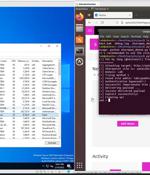Security News

Fortinet has disclosed a new critical security flaw in FortiOS SSL VPN that it said is likely being exploited in the wild. The vulnerability, CVE-2024-21762 (CVSS score: 9.6), allows for the...

A recently disclosed server-side request forgery (SSRF) vulnerability impacting Ivanti Connect Secure and Policy Secure products has come under mass exploitation. The Shadowserver...

An Ivanti Connect Secure and Ivanti Policy Secure server-side request forgery vulnerability tracked as CVE-2024-21893 is currently under mass exploitation by multiple attackers. The exploitation volume of this particular vulnerability is far greater than that of other recently fixed or mitigated Ivanti flaws, indicating a clear shift in the attackers' focus.

The U.S. Cybersecurity and Infrastructure Security Agency (CISA) on Wednesday added a high-severity flaw impacting iOS, iPadOS, macOS, tvOS, and watchOS to its Known Exploited Vulnerabilities...

Ivanti is alerting of two new high-severity flaws in its Connect Secure and Policy Secure products, one of which is said to have come under targeted exploitation in the wild. The list of...

Malicious actors have begun to actively exploit a recently disclosed critical security flaw impacting Atlassian Confluence Data Center and Confluence Server, within three days of public...

Two zero-day vulnerabilities affecting Ivanti's Connect Secure VPN and Policy Secure network access control appliances are now under mass exploitation. While Ivanti is yet to release patches for these two actively exploited zero-days, admins are advised to apply mitigation measures provided by the vendor on all ICS VPNs on their network.

The U.S. Cybersecurity and Infrastructure Security Agency (CISA) has added a critical security vulnerability impacting Microsoft SharePoint Server to its Known Exploited Vulnerabilities (KEV)...

The U.S. Cybersecurity and Infrastructure Security Agency (CISA) on Thursday added three security flaws to its Known Exploited Vulnerabilities (KEV) catalog based on evidence of active...

The U.S. Cybersecurity and Infrastructure Security Agency on Wednesday added a high-severity flaw in the Service Location Protocol to its Known Exploited Vulnerabilities catalog, citing evidence of active exploitation. Tracked as CVE-2023-29552, the issue relates to a denial-of-service vulnerability that could be weaponized to launch massive DoS amplification attacks.